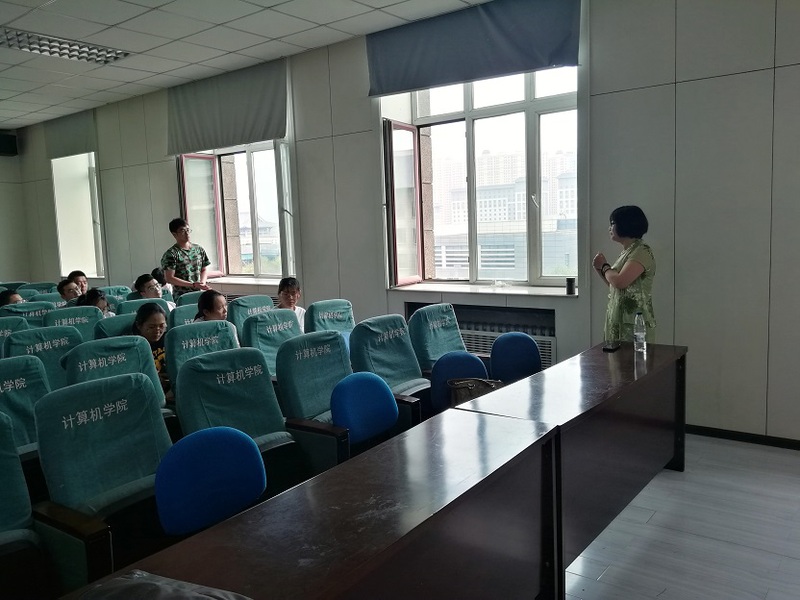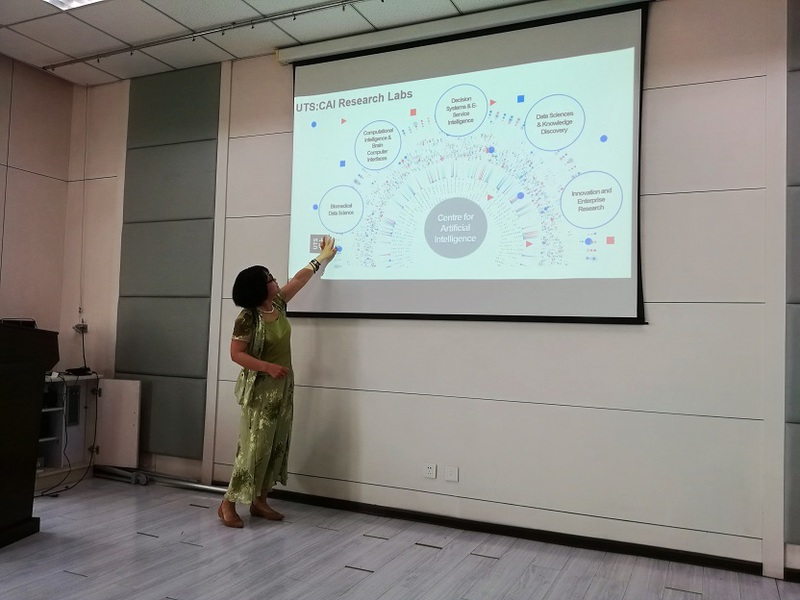“学萃讲坛”秉承学名家风范、萃科技精华的理念,以学术为魂,以育人为本,追求技术创新,提升学术品位,营造浓郁学术氛围,共品科技饕餮盛宴!
报告题目:When Computational Intelligence Meets Smart City: Challenges and Opportunities
报 告 人:Haiyan (Helen) Lu
报告地点:21#426多媒体教室
报告时间:2018年7月19日14:00-16:00
主办单位:科学技术研究院
承办单位:计算机科学与技术学院
报告人简介:Haiyan (Helen) Lu received her B.Eng. and M. Eng. from the Harbin Institute of Technology, Harbin, China, in 1985 and 1988, respectively, and the Ph.D. degree in engineering from the University of Technology, Sydney, Australia, in 2002. She is currently a senior lecturer with the School of Software, University of Technology Sydney, Australia. She is a core member of the Decision Systems & e-Service Intelligence Lab in the Centre for Artificial Intelligence. She has published three book chapters, 53 refereed international journal articles and 80 refereed conference papers. Her research interests include computational intelligence with focus on evolutionary optimization algorithms, time series forecasting, ontology, recommendation techniques and their applications in business and engineering, especially in smart cities. She is a senior member of IEEE.
报告内容:The smart city initiative aims to optimize the efficiency of city operations and citizen service delivery using information and communication technology with the aid of advancement of digital data sensing technology. The expected solution of a smart city could be a complex cyber-physical ecosystem that connects various physical devices to an Internet of things (or IoT) and could adapt to ever-changing real world situations through data driven optimal decision support to various stakeholders. It includes smart grid, smart transportation system, smart water supply, smart waste management, smart health care and smart education so on and so forth. In this talk, the challenges and opportunities in a smart city are explored with a focus on smart grid. The research opportunities in following three key aspects of smart grid are presented along with some preliminary work done in CAI@UTS: (i) Big Data-Driven Economic Dispatch in a Smart Grid, (ii) Big Data-Driven Power System Surveillance and (iii) Big Data-Driven Power Market Coordination.




